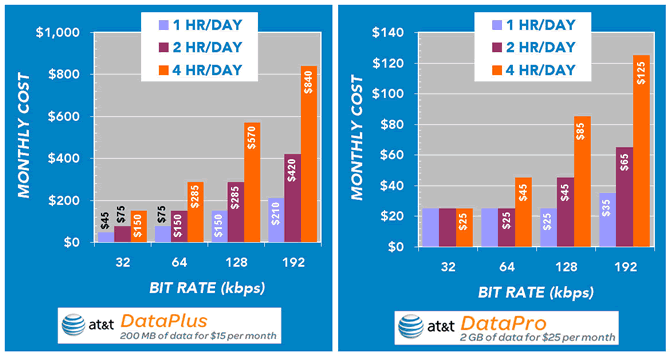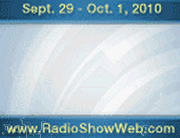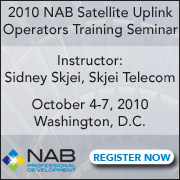
|
Mobile
Internet Radio – an Expensive Proposition To use the Webradio, listeners need to first register their product on the RadioTime homepage. RadioTime provides an easy means of finding local, national or global radio programming airing on stations in 140 countries and broadcasting in 55 different languages. It provides an Open Application Programming Interface (API) to enable hardware manufacturers and software developers to add the RadioTime guide to their devices and applications. Other ways to access RadioTime in the auto (besides the Dension device) are discussed on the RadioTime Web page at http://inside.radiotime.com/powered-by-products?cat=auto. Once registered with RadioTime, the listener adds desired stations to a “preset” folder, and each preset folder will then appear as a folder in the root directory of the Webradio. Presently, MP3-formatted radio stations are supported but WMA and AAC-formatted stations are not. However, the Webradio has the ability to be updated by the user with new firmware from Dension so this situation may change in the future. Next, the Webradio needs to be paired with a Bluetooth and Internet tethering-capable mobile phone that supports 3G or 4G data service. According to Dension, in an area with good 3G coverage the set-up time for the Webradio (once plugged in to the car radio and paired with the phone) is typically less than a minute. 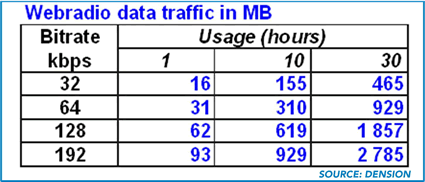
Using an estimate of the megabytes (MB) of data required to listen to the Webradio available on the Dension Web page (given in the table at right), an estimate of the monthly cost of operation has been made based upon data service packages currently being offered by cellular carrier AT&T (www.att.com). AT&T offers two different packages–“DataPlus” which includes 200 MB of data for $15 per month, with each additional 200 MB costing $15, and “DataPro” including 2 GB of data for $25 per month, with each additional 1 GB costing $10. (Additional information about the AT&T data plans is available on the Internet at www.att.com/shop/wireless/plans/data-plans.jsp, including a link to a “data usage calculator” that allows users to estimate their daily or monthly usage based upon the number of emails sent and received, Web pages viewed, social media posts and the amount of streaming audio and/or video consumed.) For the purposes of these estimates, a month is assumed to consist of 30 days, and any additional data usage (of the 3G data plan) by the listener for purposes of sending and receiving emails, web browsing, etc., is not included (nor are service fees and taxes). With these assumptions, the estimated monthly costs of listening to the Webradio for each of the AT&T plans is shown in the graphs below, for the cases of 1, 2 and 4 hours of listening per day, as a function of the bit rate used for the streaming audio (the higher the bit rate, the better the audio quality). For example, at a bit rate of 128 kbps and 2 hours of listening a day, the cost under the DataPlus and Data Pro plans would be approximately $285 and $45 per month, respectively. The Dension Webradio is now available in the U.S. with a suggested MSRP of $120. For more information, visit the Dension website at www.dension.com/index.php?pageID=299.
|
|
Proposals
Now Being Accepted for In order to be considered, proposals must explain what attendees can expect to learn from the paper, must not be a sales pitch, and should be no more than 200 words in length. Papers accepted for presentation at the 2011 NAB Broadcast Engineering Conference will be eligible for the NAB Best Paper Award. Established in 2010, the Best Paper Award honors the author(s) of a paper of exceptional merit published in the NAB Broadcast Engineering Conference Proceedings. The yearly proceedings, published as both a book and a CD-ROM is a compendium of these technical papers, and an important archive of the leading edge of broadcast engineering issues. Technical paper
proposals submitted for the 65th annual Broadcast
Engineering Conference will be accepted until the October 22
deadline. If you have any questions, contact John
Marino, VP NAB Science and Technology at (202) 429-5346.
The August
23, 2010 Radio TechCheck is also available in
an Adobe Acrobat file. |
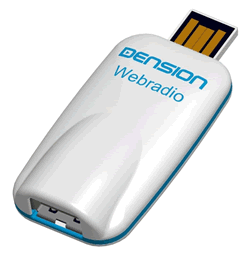 An
example of this can be seen with a new device called the Dension
Web Radio (see photo), a USB flash-drive sized appliance that allows
listeners to access Internet radio from a 3G-capable mobile phone,
via the USB music port of a car or home audio system. Developed
by Dension Audio Systems (Budapest, Hungary,
An
example of this can be seen with a new device called the Dension
Web Radio (see photo), a USB flash-drive sized appliance that allows
listeners to access Internet radio from a 3G-capable mobile phone,
via the USB music port of a car or home audio system. Developed
by Dension Audio Systems (Budapest, Hungary, 